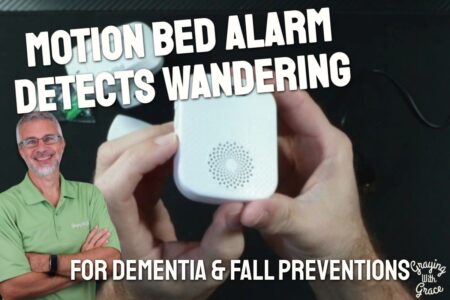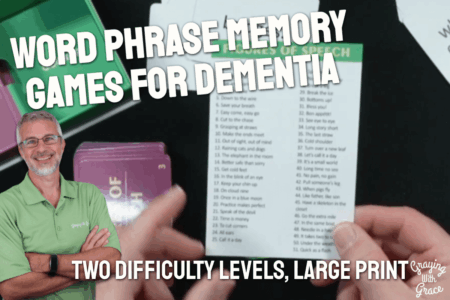You walk into the kitchen and suddenly pause, wondering why you came in the first place.
You meet someone at the grocery store whose face looks familiar, but their name escapes you completely.
Sound familiar?
If you’ve experienced these moments of mental cloudiness—what experts call “brain fog”—you’re far from alone.
Recent studies show that nearly 70% of adults over 65 report occasional memory lapses or difficulty concentrating.
But here’s what might surprise you: the solution isn’t complicated medication or expensive treatments.
It’s a simple 10-minute daily routine that’s backed by neuroscience research and easy enough to start today. The best part? You’ll likely notice a difference within just one week.

The Hidden Epidemic Nobody Talks About
Brain fog isn’t a medical diagnosis—it’s a collection of symptoms that can make you feel like you’re thinking through molasses.
You might experience difficulty finding words, trouble concentrating on conversations, or that frustrating feeling of mental fatigue even after a good night’s sleep. Perhaps you walk into rooms and forget your purpose, or struggle to follow the plot of your favorite TV show.
Here’s what you need to know: These experiences don’t mean your mind is failing. They often result from three surprisingly common factors that are completely within your control.
The first culprit is chronic mild dehydration. Even being just 2% dehydrated can significantly impact cognitive function, and many older adults don’t realize they’re not drinking enough water throughout the day.
The second factor is mental stagnation. Just like muscles, your brain needs regular challenges to stay sharp. When we fall into predictable routines without cognitive stimulation, mental clarity can decline.
The third issue is physical stagnation. Blood flow to the brain decreases when we remain sedentary for long periods, leading to that foggy, sluggish feeling many people accept as “normal aging.”
Ready to discover more innovative strategies for healthy, comfortable aging? Subscribe to our newsletter for expert-tested tips and product recommendations designed specifically for older adults.

The “Sharp Mind” 10-Minute Morning Routine
This scientifically-backed routine targets all three causes of brain fog with simple, enjoyable activities you can do from the comfort of your home.
The beauty of this approach is its simplicity. You don’t need special equipment, expensive subscriptions, or complicated schedules. Just 10 minutes each morning can help clear the mental cobwebs and set you up for a sharper, more focused day.
Minutes 1-3: The Hydration Reset
Start your routine with 16 ounces of room temperature water. Not ice cold, not steaming hot—just comfortable room temperature.
Why room temperature? Cold water can actually slow absorption, while room temperature water is processed more efficiently by your body. This isn’t just about quenching thirst—you’re literally giving your brain the fuel it needs to function optimally.
Many older adults wake up naturally dehydrated after 7-8 hours without fluids. This simple step alone can improve mental clarity within minutes as your brain receives the hydration it’s been craving.
Minutes 4-7: The Cognitive Challenge
Choose one brain-stimulating activity that requires active thinking. This could be a crossword puzzle, sudoku, word search, or even a simple math challenge.
The key is rotation—don’t do the same type of puzzle every day. Monday might be crosswords, Tuesday could be number puzzles, Wednesday might be word games. This variety ensures you’re exercising different cognitive muscles.
You might enjoy exploring entertainment apps and brain training games throughout the day, not just during your morning routine. Free resources like newspaper puzzles, library puzzle books, or simple smartphone apps work perfectly for this portion of your routine.
Minutes 8-10: Gentle Movement Activation
Finish with simple movements that increase blood flow to your brain. This doesn’t mean jumping jacks or complicated exercises.
Try gentle neck rolls, shoulder shrugs, seated spinal twists, or simply standing and doing arm circles. If you’re comfortable with it, a brief walk around your living room or stepping in place works wonderfully.
The goal isn’t intense exercise—it’s activating circulation. Even these gentle movements can increase oxygen-rich blood flow to your brain by up to 15%.

Why This Simple Routine Works So Well
The science behind these 10 minutes is fascinating and encouraging for anyone concerned about maintaining mental sharpness.
Hydration directly impacts cognitive function because your brain is roughly 75% water. When you’re even mildly dehydrated, your brain cells shrink slightly, making it harder for them to communicate effectively. This is why that first glass of water can feel like turning on a light switch in your mind.
Cognitive challenges work because of neuroplasticity—your brain’s ability to form new neural pathways throughout your entire life. When you engage in problem-solving activities, you’re literally building new connections between brain cells.
Research from the University of California found that adults who engaged in daily cognitive challenges for just 10 minutes showed measurable improvements in memory and processing speed within two weeks.
The movement component activates what scientists call BDNF (brain-derived neurotrophic factor)—a protein that acts like fertilizer for brain cells.
Even gentle movement can increase BDNF production, supporting brain health and cognitive function.

Making Your New Habit Stick
The most effective routine is the one you’ll actually do consistently. Here’s how to set yourself up for success.
Choose your perfect time. Most people find morning works best because it sets a positive tone for the entire day, but any consistent time works. Some prefer the routine as an afternoon pick-me-up or evening wind-down activity.
Prepare the night before. Set out your water glass, have your puzzle book ready, and choose tomorrow’s brain challenge. Removing barriers makes success more likely.
Track your progress simply. Use a basic calendar to mark successful days, or notice how you feel throughout the day. Many people report feeling more “present” in conversations and less mentally fatigued by afternoon.
Adjust for your comfort level. If standing movements aren’t comfortable, seated exercises work perfectly. Understanding balance exercises and your physical capabilities can help you modify the routine to match your needs.
Start with just one week. Commit to seven days and notice how you feel. Most people are surprised by the difference such a simple routine can make.

Variations for Different Needs and Preferences
Your routine should fit your lifestyle and physical comfort level, not the other way around.
For those with limited mobility: All components work beautifully from a seated position. Hand and arm movements, seated twists, and even ankle circles can boost circulation effectively.
For puzzle enthusiasts: Rotate between different types of challenges—word puzzles one day, numbers the next, visual puzzles another day. Card games for seniors can provide endless variety to keep your routine interesting.
For social butterflies: Turn the cognitive challenge into a social activity. Call a friend and do the puzzle together over the phone, or work on it with your spouse or partner.
For technology users: Apps like Lumosity, Peak, or even simple crossword apps can provide your daily cognitive challenge. Learning about health and wellness apps can itself become part of your mental exercise routine.
The routine adapts to you—you don’t have to adapt to it.
Ready to discover more innovative strategies for healthy, comfortable aging? Subscribe to our newsletter for expert-tested tips and product recommendations designed specifically for older adults.
Your Sharper Mind Starts Tomorrow Morning
Mental clarity isn’t something that happens to you—it’s something you can actively support with simple, consistent habits.
This 10-minute routine isn’t about reversing aging or promising miracle cures. It’s about giving your brain the basic support it needs to function at its best: proper hydration, regular challenges, and healthy circulation.
The compound effect of these small daily actions can be remarkable. People often report feeling more confident in conversations, experiencing fewer “tip of the tongue” moments, and enjoying a general sense of mental alertness throughout their day.
You might also find that maintaining your independence with proper home safety becomes easier when your mind feels sharp and focused. Small steps toward cognitive wellness often ripple out into improved confidence and quality of life.
Your brain has carried you through decades of experiences, learning, and growth. Taking 10 minutes each morning to support its continued health seems like a pretty good investment, doesn’t it?
What’s stopping you from trying this routine for just one week? Your sharper, clearer mind is waiting—and it’s just 10 minutes away.

![Older woman preparing routine night kitchen[1]](https://www.grayingwithgrace.com/wp-content/uploads/2025/08/older_woman_preparing_routine_night_kitchen1-e1753735513497.jpg)


![Older woman walker hallway basket[1]](https://www.grayingwithgrace.com/wp-content/uploads/2026/02/older_woman_walker_hallway_basket1-e1770641082148-450x300.png)
![Older woman bridge card table concentrated[1]](https://www.grayingwithgrace.com/wp-content/uploads/2026/01/older_woman_bridge_card_table_concentrated1-e1769685409148-450x300.jpg)
![Senior man cane coffee kitchen morning 1[1]](https://www.grayingwithgrace.com/wp-content/uploads/2025/12/senior_man_cane_coffee_kitchen_morning-11-e1765809447641-450x300.jpg)
![Older woman walker daughter garden walk[1]](https://www.grayingwithgrace.com/wp-content/uploads/2025/11/older_woman_walker_daughter_garden_walk1-e1763402910723-450x300.jpg)
![Older woman daughter comfort handholding[1]](https://www.grayingwithgrace.com/wp-content/uploads/2025/10/older_woman_daughter_comfort_handholding1-450x300.jpg)
![Elderly woman son voice assistant reminders[1]](https://www.grayingwithgrace.com/wp-content/uploads/2025/10/elderly_woman_son_voice_assistant_reminders1-450x300.jpg)



